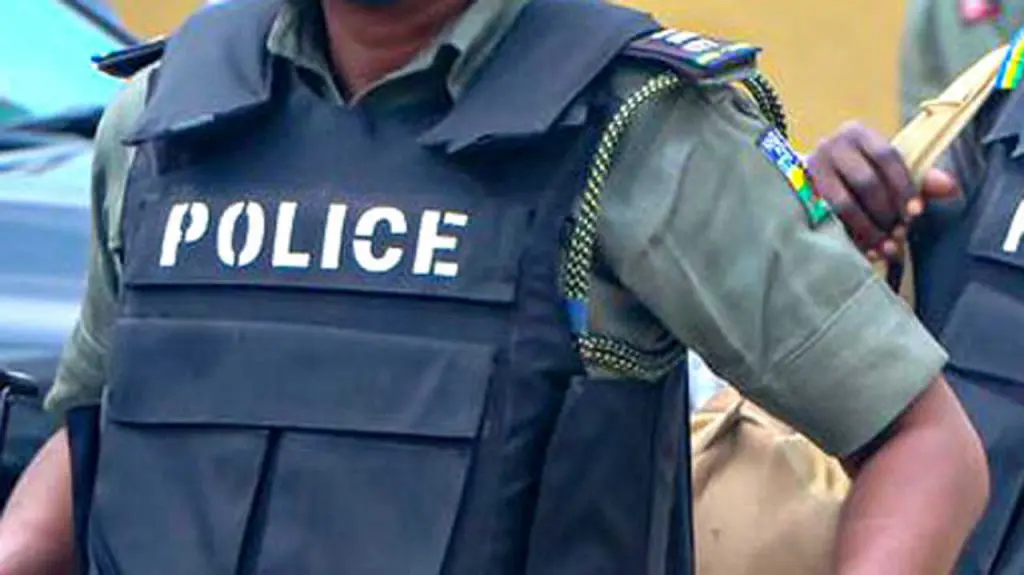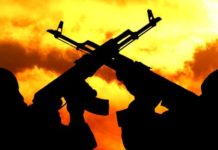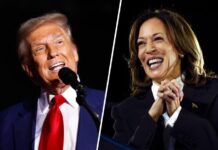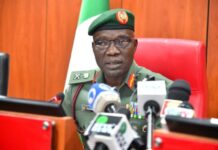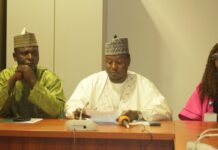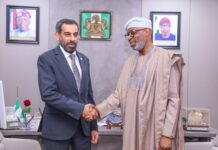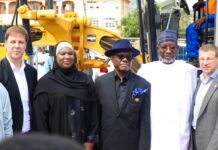By Tony Ekata
Members of the Economic Community of West African States (ECOWAS) Authority of Heads of State and Government on Sunday, July 30, 2023, at an extraordinary meeting in Abuja, Nigeria’s capital, the current seat of the regional body, issued a seven-day ultimatum to the Nigerien military to restore constitutional order and reinstate ousted President Muhamed Bazoum as the de facto leader of the country. The communique followed an earlier condemnation by the body conveyed by its chairman, Nigeria’s President Bola Ahmed Tinubu. Tinubu had said inter-alia:
“It should be quite clear to all players in the Republic of Niger that the leadership of the ECOWAS Region and all lovers of democracy around the world will not tolerate any situation that incapacitates the democratically elected government of the country. The ECOWAS leadership will not accept any action that impedes the smooth functioning of legitimate authority in Niger or any part of West Africa.
” I wish to say that we are closely monitoring the situation and developments in Niger and we will do everything within our powers to ensure democracy is firmly planted, nurtured, well rooted, and thrives in our region…”
ECOWAS Commission President, Omar Touray, reiterated this position after the meeting in Abuja when he announced that “all Chiefs of Defense Staff of the member states will proceed for an emergency meeting to strategise on effective ways to implement a possible military operation to restore Bazoum to office.”
He declared further that ECOWAS had approved the following sanctions against Niger and its military junta:
Suspension of all commercial and financial transactions between ECOWAS Member States and Niger.
Freeze all service transactions including energy transactions.
Freeze assets of the Republic of Niger in Aqua Central Bank. Freeze of assets of the Niger State and the state enterprises and parastatals in commercial banks.
Suspension of measure from all financial assistance and transactions with all financial institutions, particularly EBID.”
Expectedly, the Nigerien military responded promptly with a warning on “the consequences that will flow from any foreign military intervention,” saying, “Certain dignitaries…are in thinking of confrontation,” which “will end in nothing but the massacre of the Nigerien population and chaos.”
Reactions have continued to trail the ECOWAS position on the Niger coup. Pro-democracy blocs, especially the EU and the United States and, of course, the United Nations have left no one in doubt that they are stoutly opposed to the coup. The EU has gone ahead to suspend its budget support in Niger Republic with a demand for the deposed President Mohamed Bazoum to be released “unconditionally and without delay”. That was three days ago, a day before ECOWAS issued its one-week ultimatum. The basis for the stand of the ‘democratic’ West is that the worst democracy is better than the best military rule. Is it, really? That is a topic for another day.
Meanwhile, a significant section of the Nigerien population reacted to the coup with acts symbolising solidarity with the military, such as the widely reported looting and burning of the ruling socialist party’s headquarters. The spontaneous reaction indicated some relief from citizens who had been under pressure and silently weeping and wailing and gnashing their teeth. In fact, Yevgeny Prigozhin, the dreaded founder and leader of the Wagner Group of mercenaries, who sent Russian strongman Vladimir Putin scampering for cover recently, in what was described as an attempted coup, has described what happened in Niger Republic as freedom from colonialism. “What happened in Niger is nothing other than the struggle of the people of Niger with their colonisers. With colonisers who are trying to foist their rules of life on them and their conditions and keep them in the state that Africa was in hundreds of years ago,” the Wagner boss said in a message released a day after the coup.
Prigozhin is a businessman – a mercenary contractor. His bottom line is profit which comes mainly from barter payments through access to the mineral resources of the countries in which he has a foothold. One of such countries is Niger’s neighbour, Mali, where his services were contracted by the country’s military junta to help confront an Islamist insurgency that is ravaging the congruent border areas of Mali, Burkina Faso and Niger. Niger has gold and uranium in abundance. Niger is the fourth largest producer of uranium in the world and the main source of uranium used for electricity generation in France. It accounted for nearly 25% of all uranium imports into the European Union in 2021, helping to generate electricity for millions of households, while millions of Nigerien households have no electricity. That echoes the situation in neighbouring Nigeria where citizens queue to buy unaffordable petroleum products refined abroad despite the fact that Nigeria has the world’s eleventh biggest and Africa’s second largest crude oil deposits.
So, what has the military junta in Niger done about the country’s precious source of wealth? It has placed an immediate ban on the export of gold and uranium to its colonial master, France. Prigozhin knows this. Russia knows this. The West knows that they know. Niger knows that they know. In his social media message, Prigozhin hinted that his private military company, Wagner, can deal with situations like what is happening in Niger. There is no prize for guessing whether the military authorities in Niamey will consider this barely disguised proposition or not.
Niger’s neighbours, Burkina Faso and Mali have made it clear that they support what is going on in Niger. The military governments of the two countries said in a statement read on their national broadcasters on Monday:
“The transitional governments of Burkina Faso and Mali express their fraternal solidarity … to the people of Niger, who have decided with full responsibility to take their destiny in hand and assume the fullness of their sovereignty before history,”
“Any military intervention against Niger would be tantamount to a declaration of war against Burkina Faso and Mali,” they warned, adding that such a move could result in “disastrous consequences” that “could destabilise the entire region”.
The region they are talking about is essentially the ECOWAS region. The biggest and richest country in the region is Nigeria. The current ECOWAS chairman is the Nigerian president. Therefore, it is imperative for ECOWAS, particularly Nigeria, to tread carefully in this matter and consider solemnly the threat to launch a military reprisal offensive against General Abdourahamane Tchiani and his military high command. Someone should draw the ears of ECOWAS leaders with the following hard facts:
America and France have military bases with top-notch intelligence units in the ECOWAS region. Beyond verbal condemnation, could they not have nipped the coup in the bud?
What is the proof that ECOWAS can walk its talk when it has been unable to do anything about the coupists in Mali, Guinea, and Burkina Faso beyond the membership suspension, economic sanctions, and travel bans imposed on them?
Who will fund an ECOWAS war against Niger Republic, and what is the military capability to counter the joint forces of Niger, Mali, Burkina Faso, very possibly the Wagner mercenaries, and the silent powers eyeing Niger’s mineral resources?
This is not the days of ECOMOG which was largely spearheaded by Nigeria. Nigeria has been unable to contain terrorism and banditry within its domain for over a decade.
Given Nigeria’s proximity to Niger, a war against Niger is basically a war between the two countries
Niger has been a useful ally to Nigeria in the fight against terrorism. Their military knows Nigeria’s soft spots.
Niger hosts hundreds of thousands of Nigerian refugees and, according to former President Muhammadu Buhari, Nigeriens are Nigeria’s cousins. Nigeria is also home to uncountable Nigeriens. Will Nigeria lead a war against its people?
Nigeria has a ‘rich’ history of military coups. Nigerians battled and dislodged the military from power by themselves. They did not rely on an ECOWAS military intervention.
Nigeria is currently fighting an unrelenting war against poverty, hunger and disease. Hungry Nigerians are unlikely to support expending resources that should be used in addressing their ailments on another country’s headache.
War is like a fire started by a madman. You can tell where it started but you cannot predict where it will end. ECOWAS should ponder the consequences of America’s pro-democracy military interventions in Afghanistan and other countries.
The regional body should be careful not to begin what might end as a comedy of errors. But if not war, what options are available? In the present instance, jaw-jaw is a viable option. A committee of reputable ECOWAS former heads of government may be constituted to dialogue with the Nigerien military authorities on the way forward. It would be naïve to expect that sweet talk would dislodge them from power. But a transition plan of a year or two could be less costly in terms of material resources and human lives than a bloody war with no definite timeline.
Finally, ECOWAS and African leaders must give priority to good governance and condemn bad governance in every shape or form. They should address the causes of coups, which are often built on the disgruntlement of the governed over corruption, oppression, insouciance, and impunity of the ruling elite. Almost everywhere you go in Africa, the words of Nigerian Reggae icon Ras Kimono, in his debut album ‘Under Pressure’, released 34 years ago, resonate:
“Under pressure we wail under pressure
Under pressure black people under pressure
Under pressure Nigerians under pressure
Under pressure Africans under pressure
No food in we belly
No money in ah we pocket
No bed to lay we head
The people dem are suffer
In da ghetto, in da city
Everywhere dat me go oh
Me see them: some are cry, some are die
Some are weeping! Some are wailing!
Everywhere dat me go oh eh…”
The only thing that is worse than military coups is what causes military coups. More importantly, leaders everywhere must earn the moral authority to condemn other leaders anywhere, military or not, by ensuring that their own ascension to power aligns with the wishes of their people and not through electoral coups.
Tony Ekata is a South Africa-based Communications Consultant and International Affairs Analyst.











